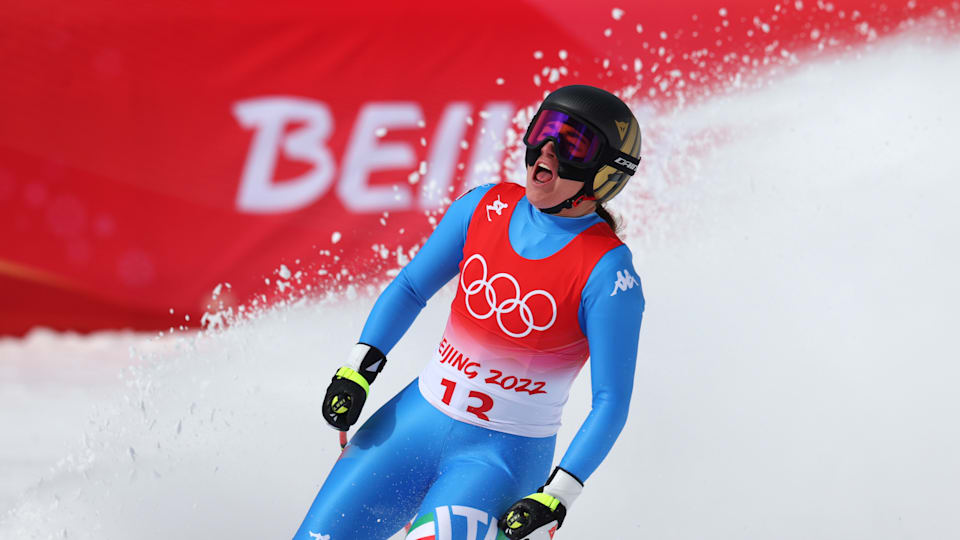Sofia Goggia: The keys to my ‘inner strength’
The Italian alpine ski star, who won downhill gold at PyeongChang 2018, reveals where her desire to win comes from, why she still gets insecure, and what her medal-winning routine is.

Injuries are typically seen as an athlete’s greatest opponent, but Sofia Goggia has a different take.
The Italian alpine ski star, who won downhill Olympic gold at PyeongChang 2018, believes that her time spent on the sidelines is one of the factors behind her success.
“Injuries – even if they took me out of racing - they gave me an incredible inner strength,” the 29-year-old told the Red Bull podcast.
“You must have a strong will to get out of some difficult black holes.”
This resilience was on full display at Beijing 2022, where Goggia sealed downhill silver just three weeks after damaging her ACL and fracturing her fibula.
“My inner strength is what I’m most grateful for in my life because that’s what has always helped me, although I still need to find all its potential.”
Goggia will compete in the Alpine Ski World Cup finals in France from March 14 to 20, where a top-10 finish on Wednesday will see her clinch another downhill Crystal Globe.
MORE: Mikaela Shiffrin and Sofia Goggia's Crystal Globe races: The heat is on
"I always had an inner belief"
There is nothing so academic about Goggia’s achievements in sport.
While many of her competitors chose their professions on account of their parents’ passion, the Lombardy native's substantial trophy cabinet is largely a result of her pure desire to win.
“I come from a family with no sporting background,” she continued.
“The first time I put my skis on was when I was 4 in Foppolo and something incredible clicked inside myself, a crazy love for this sport.
“There wasn’t a particular moment when I understood I would become a champion, but I always had a small flame inside and I always believed I could make it. I always had an inner belief.
Sofia Goggia's routine
While having an unbreakable will to win is a good foundation, it is only one requirement to compete at the top table of alpine skiing.
Goggia also sees routine and preparation as crucial to performing well.
“Before I go to sleep I tell my brain, ‘Dream about the course and the right lines…’ It’s almost if I tell it to keep working and collect information after my training runs,” she continued.
“From a technical point of view, I focus (before the race) on the technical moves that I’ll need in race.
“The pure technique is probably not my strongest skill, but I’ll try to pay attention to every detail from sleep, food, other things I need to take care of … I’m not superstitious, but I like to have my routine. Routine puts me in a sort of comfort zone because you keep doing things that make you feel confident.”
Despite achieving so much in her career to date, Goggia still has moments of insecurity.
“The last time I cried in front of someone was during a video call with my mum when I turned 29,” she said.
“I had a moment of crisis as if that birthday scared me a bit. It was the last year before turning 30 and I thought that I’m doing this life since forever and I haven’t built much outside of it (skiing). That same day I cried alone in my room because I was feeling down. But I think it’s understandable, I have a very stressful life and being down every now and then I think it’s normal.
“I still dream a lot and I feel like I want to express the best version of myself, both as a person and skier.
Perhaps because of this, Goggia has ambitions to complete higher education, proving that even champion skier can make time to keep on learning.
“I dream of graduating one day, because I’ve enrolled in a university. I try to take advantage of the available time, which is not a lot. It’s worth it, so I proceed with calm, but relentlessly."
